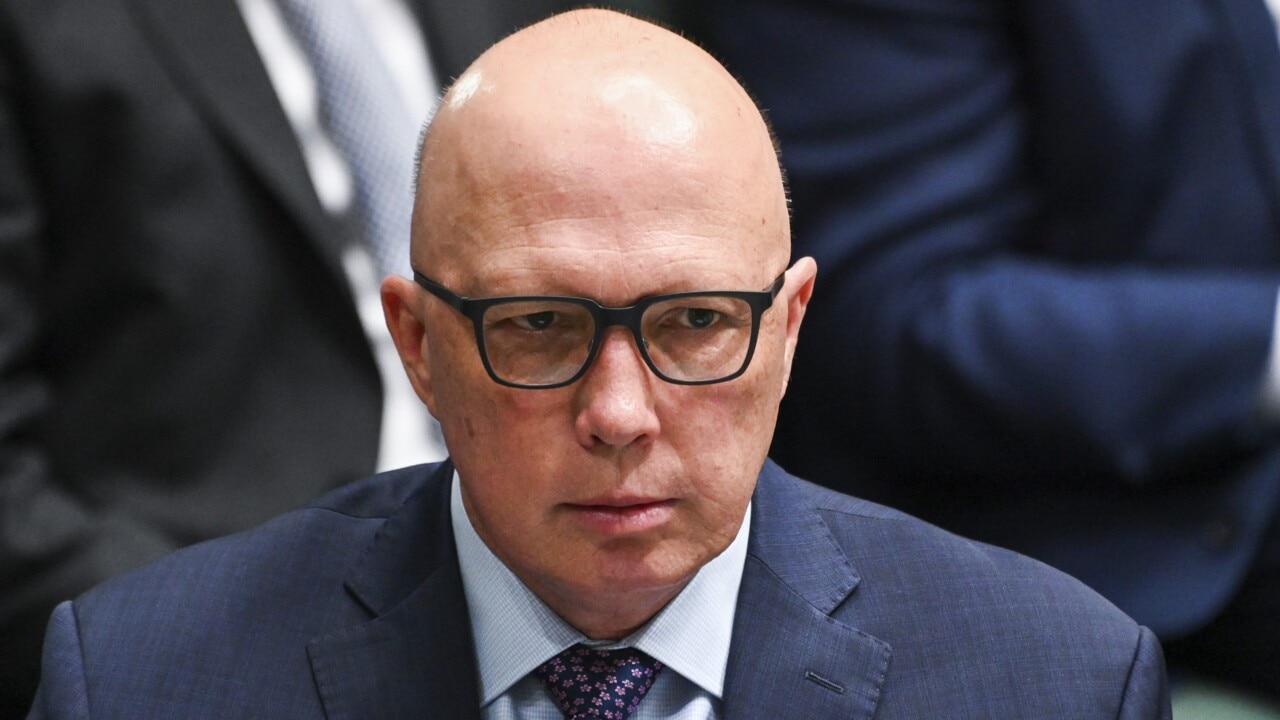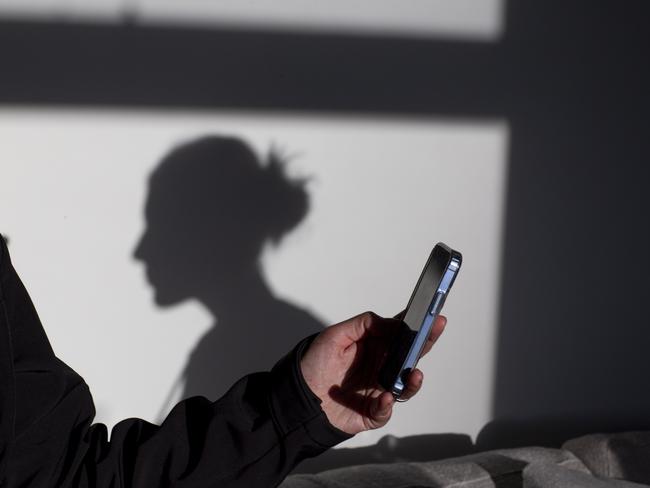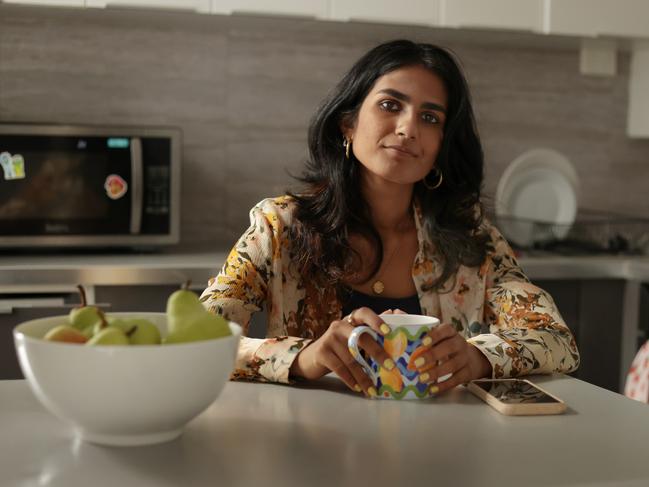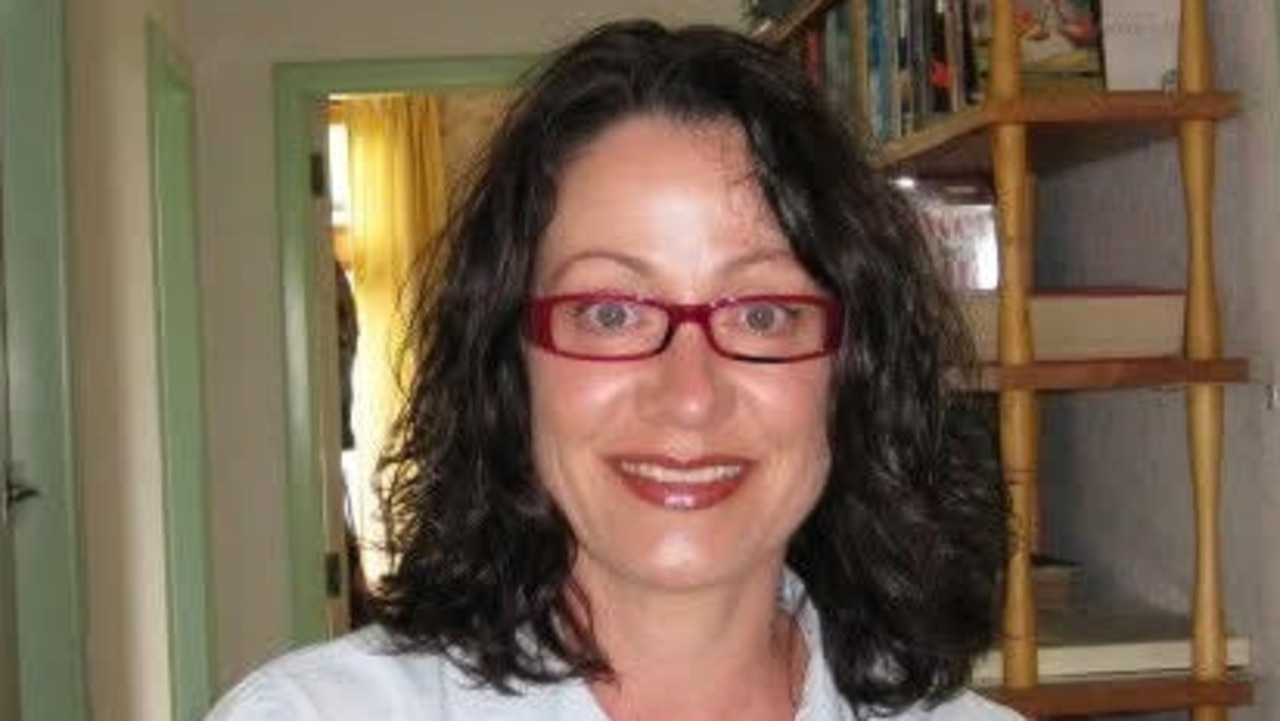‘We look different, and that is a good thing’: ‘Media smart’ class could combat harmful online ‘appearance ideals’
As officials scramble to combat the surge in eating disorders and mental health issues perpetuated by social media in young people, schools are being urged to introduce a new classroom program to support students directly.

Victoria
Don't miss out on the headlines from Victoria. Followed categories will be added to My News.
Schools are being urged to make their students “media smart”, with a $495 world-leading program found to more than halve the number of concerns about body shape and weight.
Adelaide researchers have developed a universal program for kids in late primary school and early high school that teaches them to challenge “ideal images” in a bid to lower eating disorder and other mental health risks.
The Albanese government is under pressure to increase investment in media literacy, after an expert roundtable investigating the effects social media has on body image last week recommended more education and training for teachers.
Flinders University senior research fellow, Dr Simon Wilksch, created the Media Smart for Schools initiative with colleague Prof Tracey Wade in his fight to reduce the burden of eating disorders.

The clinical psychologist, who runs a clinic that treats eating disorders, has seen first-hand the devastating role social media is having on the development of eating disorders.
“One of the reasons I’m so concerned about social media is because of the appearance based content,” Dr Wilksch said.
“For vulnerable people, they are just seeing so much content that can make them feel inadequate or can make them feel that appearance is really, really important and so it can increase those kinds of eating disorder thoughts.
“Social media literacy is protective, as is positive relationships and self-compassion.”
Research shows 75 per cent of adolescent girls and 50 per cent of boys report body dissatisfaction, with more than half of girls engaging in disordered eating behaviours in the past 12 months.
But Media Smart for Schools – which international experts regard as the leading eating disorder risk reduction program worldwide for classroom settings – aims to give adolescents the tools to reduce the importance placed on body shape and weight in determining one’s self-worth.
The eight-lesson media literacy program covers the manipulation of images such as airbrushing, ideas for how to analyse and challenge messages, and tips for growing as a skilful and confident person.

Dr Wilksch said it deliberately tried to “not be preachy” about what to do on social media, instead enabling students to reach conclusions about certain types of pictures and videos themselves.
“We don’t tend to provide lots and lots of information about what is body image, what are appearance ideals,” he said.
“We prefer to just really encourage young people to reflect on their own use of social media and what leaves them feeling better, what leads to them not feeling so good.
“We want them to … develop the views that they might be a bit more careful about it, or reduce certain types of content.”
Dr Wilksch said the evidence-based lessons differed from other classroom wellbeing programs because it took a broad approach to mental health and didn’t specifically discuss eating disorders.
An evaluation of the program with over 3500 year six to eight students revealed significant reductions in risk factors, including a 58 per cent reduction in the onset of clinical concerns about body shape and weight.

Participants also reported improvements in risks such as dieting, pressures about appearance, excess screen time, depression and anxiety.
More than 98 per cent of participants rated the program as valuable and enjoyable.
Dr Wilksch said they were interested in expanding the program to students in grade five because “earlier would be better these days”.
“We would like to see some funding to help it become more available to schools around Australia,” he said.
Dr Wilksch has previously studied the relationship between social media and eating disorder symptoms among students in years seven and eight.
He said Instagram and Snapchat were “particularly bad” but TikTok had exploded in recent years.

Research shows a greater number of social media accounts was also associated with higher reports of disordered eating behaviours such as strict exercise and meal skipping.
Dr Wilksch said he was supportive of young Australians not being able to use social media until they were 16 years old.
He said the 200 per cent surge in the number of 10-14 year olds being diagnosed with an eating disorder between 2012 and 2024 could be attributed to increased social media use.
“It is a sign that people that age should not be using social media,” Dr Wilksch said.
“My first bit of advice would be to delay accessing social media for as long as possible.”
Year six students at Concordia College’s St John’s campus in Adelaide undertook the Media Smart program earlier this year.

Students Audrey, Felicity and Emmy found that it opened their eyes to “false advertising” that could affect how people view themselves because they didn’t look like a celebrity.
They realised that social media was “fake”, didn’t portray real life, and set impossible beauty standards.
“It encourages you to not change your body. We look different, and that is a good thing,” the girls said.
“Being someone else isn’t good for your mental health and you might get depressed.”
Teacher Janine Sarson-Parker the year six students had been given the skills to question content and be critical thinkers, which was essential for navigating a digital world.
“The Media Smart program is an ideal tool for raising student awareness of the deceptive and potentially dangerous nature of media,” she said.
“Media Smart provides the opportunity for all schools to start this conversation with their students.”
The Media Smart for Schools program is available for $495 on the Flinders University website.
‘Why is the onus on people who are struggling?’: Varsha’s story
Varsha Yajman’s battle with anorexia began around the age of 13 but she struggled to get help as a woman of colour.
Ms Yajman, who has an Indian background, says she turned to social media to seek support and validation but the move was a double edged sword.
“A lot of the content was advertised as being recovery-related but it was just promoting diet culture through things like ‘what I eat in a day’, or beauty filters, or how much people’s bone stick out,” the Sydney woman said.

“I just remember watching ‘cheat day’ videos all the time and like, I would go to sleep with them at one point.
“You just look at everything, like your eyes are just on people’s bodies and comparing.
“There still wasn’t much representation – everyone was thin and white and I was like ‘okay well, I still don’t fit the criteria for an eating disorder.”
Ms Yajman said at age 14 she had no media literacy and there was no content regulation at the time.
She said YouTube had lots of videos, Instagram had lots of bodies and posing, and websites dedicated to furthering people’s anorexia would pop up again and again despite people trying to have them removed.
“Even at 21 now after years spent healing from my eating disorder … there are times where I have to delete social media,” Ms Yajman said.
“With my TikTok, I’m so-so careful about making sure that my algorithm doesn’t slip into those cracks of like … a leggings gap trend that happened recently that they had to take down.”

She said she followed the setting advice from Meta and TikTok and had taken out words such as “diet culture” but she continued to get related advertising.
“It’s quite clear that this type of content is usually advocated as well as being health content or wellness and it’s quite the opposite,” Ms Yajman said.
“Why is the onus on people who are struggling? Why isn’t it on the corporations and the government who actually have the ability to regulate?”
Ms Yajman was recently part of a roundtable that provided advice to the federal government about changes that should be made to reduce the harmful effects of social media on eating disorders.
She said she hoped there were improvements to media literacy and the algorithm.



